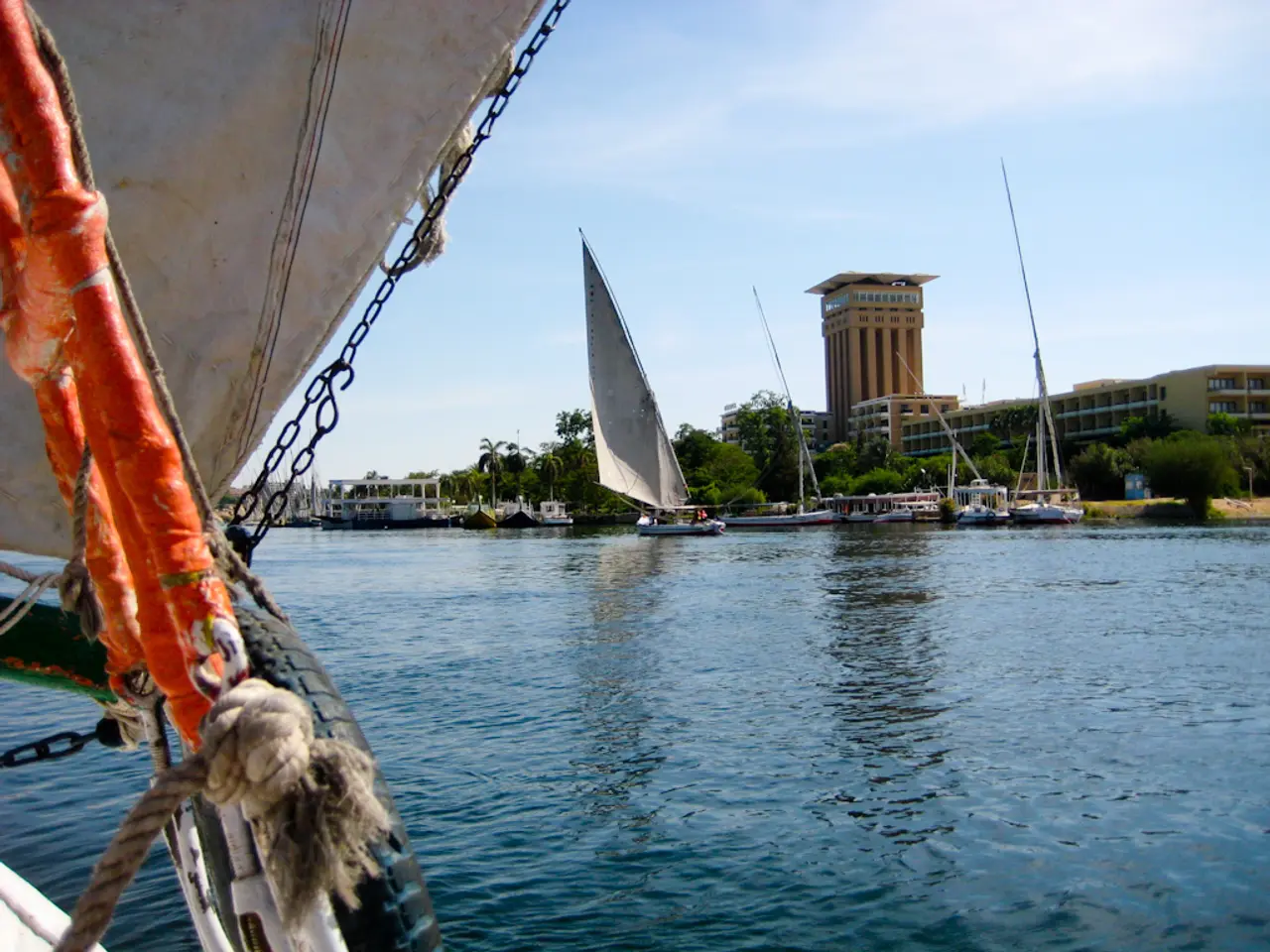Advancement of the canal's development continues
The Nord-Ostsee Canal, a critical maritime infrastructure in Germany, is currently grappling with persistent staff shortages, a matter of concern for the Initiative Kiel Canal and other stakeholders. This issue, which has been a topic of discussion in the news, is causing delays and disruptions in the expansion project, originally scheduled to start in mid-2019 but only commencing in January 2020.
The Initiative Kiel Canal, an organisation that advocates for the improvement of the canal, has been vocal about the staff shortages, with its chairman, Jens B. Knudsen, stating that these shortages undermine confidence in German maritime infrastructure. Knudsen believes that the staff shortages at the Nord-Ostsee Canal are a significant concern that should be addressed to ensure the success of the expansion project.
The expansion of the canal between Königsförde and Kiel is considered very important due to the anticipated increase in passage numbers from 2024. This expansion aims to widen the canal bottom to a minimum width of 70 meters and ease curves over about 11 kilometers of canal banks, addressing a significant bottleneck in the canal's eastern section.
The Waterways and New Construction Authority Nord-Ostsee-Kanal (WNA) has already delivered 150,000 tons of stones from Norway for the pavement of the water exchange zone from Königsförde to Schinkel. The operating route and the new slope above the shore area in the entire first construction phase of the Nord-Ostsee Canal are expected to be completed by early 2024.
Despite these challenges, the benefits of the expansion are significant. The enlarged canal will increase capacity and safety, allowing more and larger ships to transit simultaneously and reducing waiting times. It will also enhance route efficiency for maritime traffic between the North Sea and Baltic Sea, serving as a critical shortcut saving ships from navigating around the Jutland Peninsula. Moreover, it will support economic benefits for the region and Germany overall by facilitating smoother and more reliable maritime trade logistics through one of the world's busiest artificial waterways.
Addressing the staff shortages will be crucial for the successful completion of the expansion project and the realisation of its full benefits. The German Bundestag allocated approximately 265 million euros in funding for this project back in 2014 to support the necessary planning and construction activities, indicating the importance placed on this project's success. As the expansion progresses, it is hoped that the staffing issues will be effectively addressed to ensure the timely and efficient completion of this vital upgrade to Germany's maritime infrastructure.
The Initiative Kiel Canal, a champion for the canal's improvement, remains concerned about the staff shortages at the Nord-Ostsee Canal, as they might adversely impact the expansion project's success. To ensure the project's full benefits, such as increased capacity, safety, and economic advantages for the region, it is necessary to address these staff shortages.




